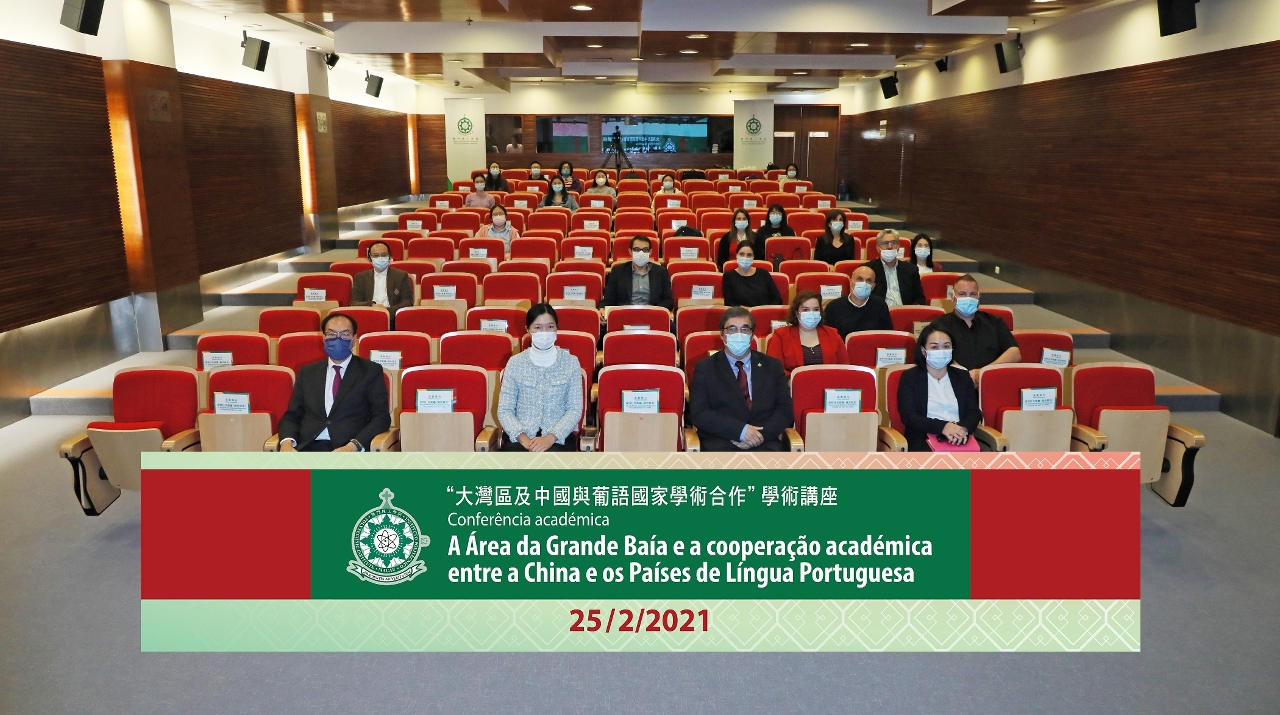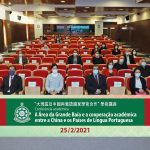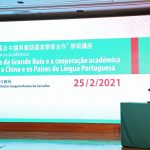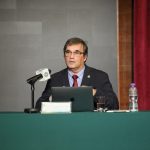 Macao Polytechnic Institute held a lecture on the Greater Bay Area and academic cooperation between China and the Portuguese speaking countries
Macao Polytechnic Institute held a lecture on the Greater Bay Area and academic cooperation between China and the Portuguese speaking countries
In order to analyze and promote the new opportunities initiated by the development of the Guangdong-Hong Kong-Macao Greater Bay Area, on the occasion of the 2nd anniversary of the promulgation of the “Outline Development Plan for the Guangdong-Hong Kong-Macao Greater Bay Area”, the International Portuguese Training Centre of Macao Polytechnic Institute held a lecture on the Greater Bay Area and the academic cooperation between China and the Portuguese speaking countries on 25 February. The speaker was Professor Joaquim Ramos de Carvalho, Director of the International Portuguese Training Centre and former Vice-President of the University of Coimbra. The lecture attracted teachers and students from Macao higher education institutions, scholars and interested parties, and it was lively and interactive.
In the lecture, Professor Joaquim Ramos de Carvalho reviewed the content of the “Outline Development Plan for the Guangdong-Hong Kong-Macao Greater Bay Area” promulgated in 2018, stating the multiple references to Portuguese speaking countries in the document and stressing that they enhanced the geographical significance of the Greater Bay Area to the outside world. As the platform between China and Portuguese speaking countries, Macao is tasked with an important mission in the external engagement of the region. Moreover, the Outline Development Plan defines important targets in innovation, transfer of advanced knowledge to the productive sector, creation of incubation facilities and attraction of international talent. Therefore, this will trigger growing attention from academia all over the world. The academic institutions in the Portuguese speaking countries have the advantage of well-defined focus, as the Plan defines the areas in which Macao shall innovate and add advanced knowledge in the scope of its role as the Sino-Lusophone platform. The relations between the Greater Bay Area and the Portuguese speaking countries will form one of the most dynamic regions in the world, and it will have an increasing global impact in the near future.
Professor Joaquim Ramos de Carvalho reminded the audience that there were various historical examples of how academic cooperation intensified in parallel with the process of new regional integration. This happened in the European Union and in the Southern Common Market (MERCOSUR), where new forms of academic cooperation developed, aimed at facilitating better compatibility of teaching, research and innovation systems, with special focus on new opportunities for young talents. He believes that a similar process will develop in the Greater Bay Area, as academic institutions worldwide increasingly turn their attention to a region that will augment its status as a global innovation centre. The recent report of the Chinese Academy of Social Sciences on Macao Forum, published in 2020, also stresses the importance of expanding academic cooperation and cultural exchanges in the future development of Macao in the role of a Sino-Lusophone platform.
Macao Polytechnic Institute aims to contribute to the global vision of Macao as a Service Platform between China and the Portuguese speaking countries, as well as the development of academic cooperation within the framework of the Greater Bay Area Development Plan.




